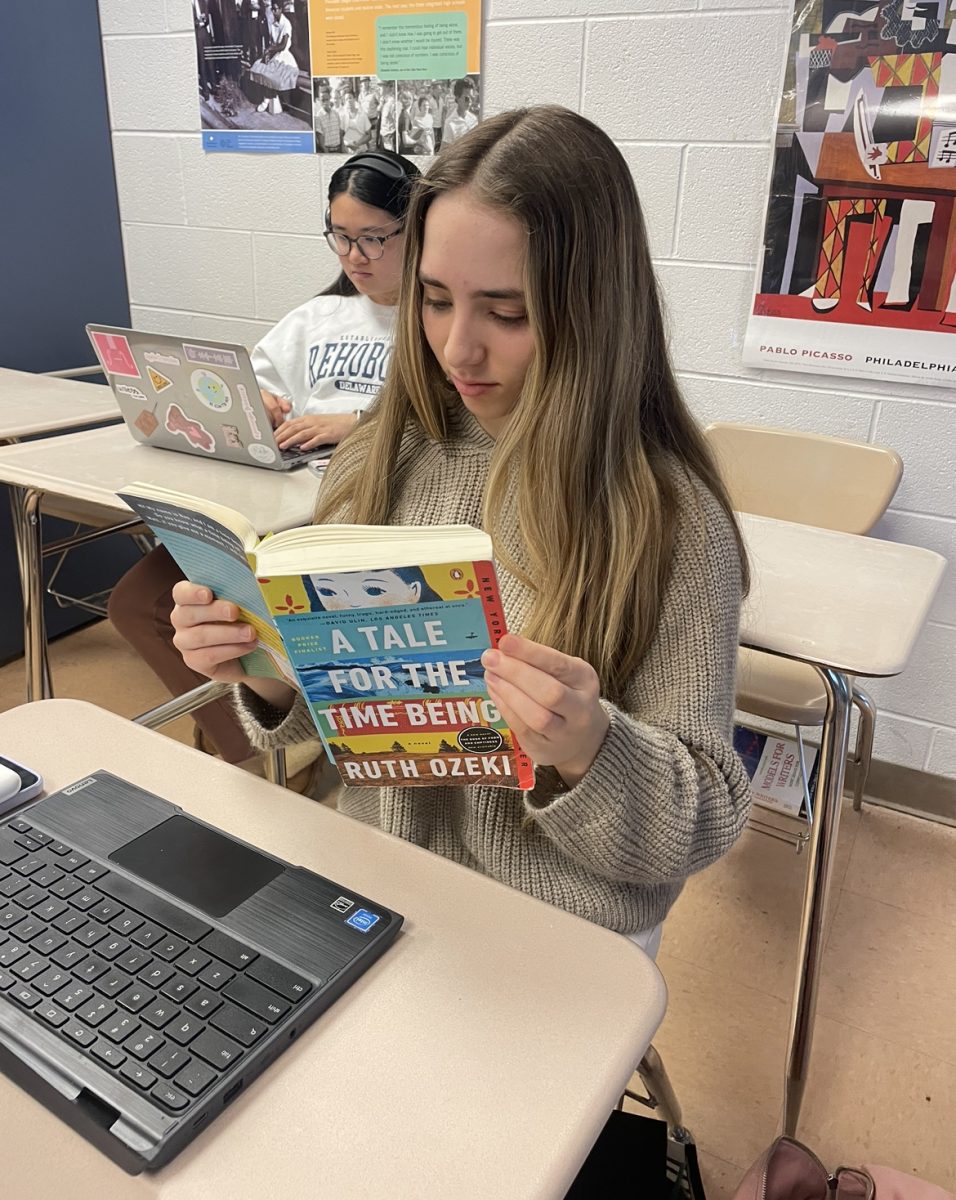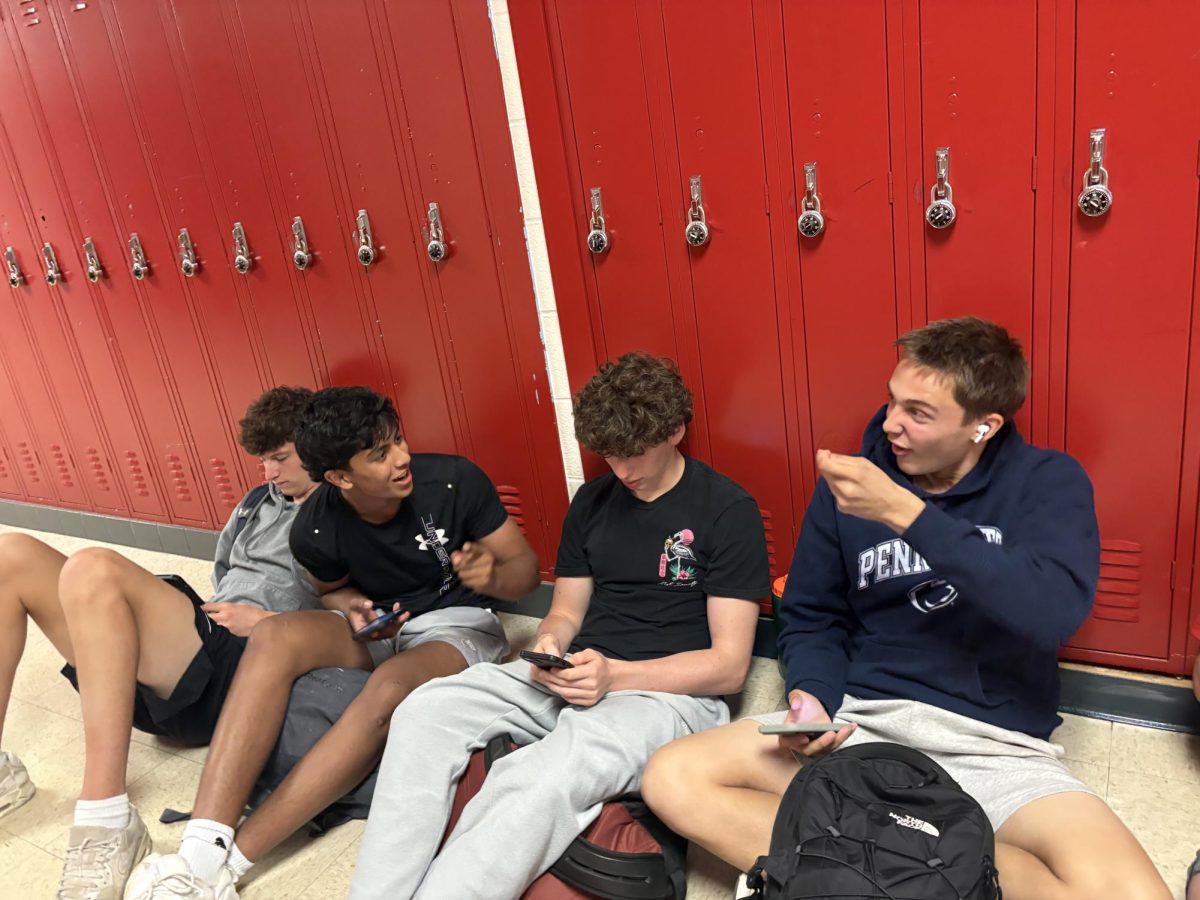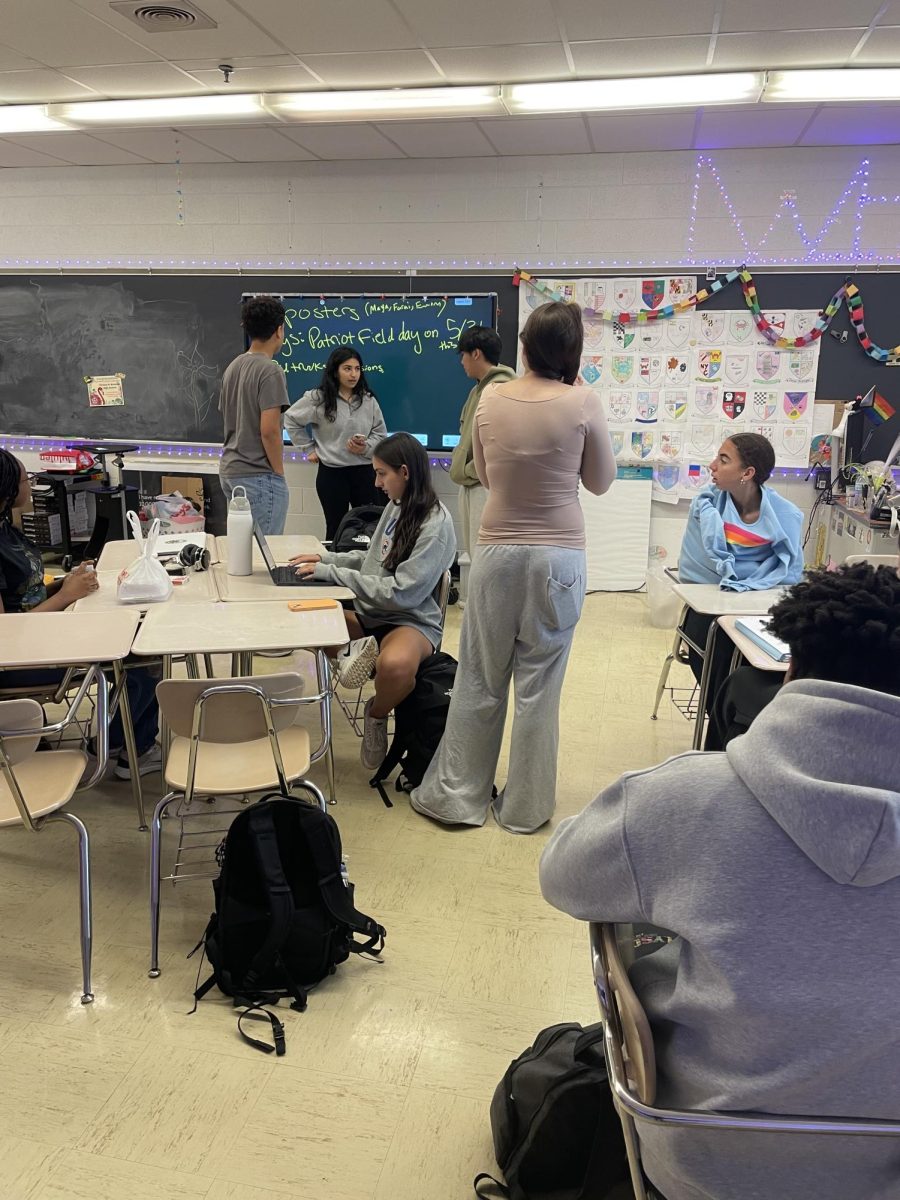“The Bluest Eye,” by Toni Morrison,: banned on 22 separate occasions throughout the country for subject matter containing sexual assault and substance abuse. “All Boys Aren’t Blue,” by George M. Johnson,: removed from schools 29 different times due to its content on sex and profanity. Gender Queer: A Memoir, by Maia Kobabe,: banned from schools in 41 instances because of its discussion of sexuality and gender identity.
These books were the top three on the most banned books in America list of the 2021-2022 school year. Despite AP Literature’s newest book, “A Tale for the Time Being,” by Ruth Ozeki, touching on the same subject material as in the books mentioned above, this school’s AP Lit curriculum rejects the widespread censorship seen in schools across the county.
“A Tale for the Time Being” follows the story of Nao, a 16-year-old girl living in Tokyo, as she writes in her diary with a plan to document the life of her great grandmother before committing suicide. The reader of her diary is revealed to be Ruth, a novelist living on a remote island off the coast of Canada, who found the book washed up on shore, concealed in a Hello Kitty lunch box. The novel explores the relationship between writer and reader, past and present and fact and fiction. It also covers difficult topics, including suicide, depression, substance abuse, sexual violence and bullying.
This is the first year the book is being taught in the school’s AP Lit curriculum, but head of the English Department Evva Starr read it about five years earlier. “I read it on my own just as a reader and I immediately thought it would be great to teach to seniors because of the way it offers us an opportunity to think of our own lives as bigger than we tend to,” Starr said.
Soon after, Starr proposed the book to the now former leader of the English Department, Zachary Lowe, who agreed on the book’s fit for the AP Lit curriculum. They then got it approved by MCPS to be taught in class. Due to the Covid-19 pandemic, the book wasn’t introduced to the curriculum until this year. “This is the first time that we taught the book so some of the things we are doing, we are refining for future use next year,” Lowe said.
“A Tale for the Time Being” is unique to the AP Lit curriculum in various ways. Not only is it a contemporary novel, as opposed to Shakespeare and Jane Austen, the two authors studied in AP Lit earlier this school year, but it also covers topics relevant to the lives of teens. Throughout the book, Nao experiences extreme bullying from her peers both in class and online, which causes her mental health to deteriorate. “Right now there is a growing concern over teen mental health. Particularly, this pertains to bullying and social media experiences, this is an even broader concern among teenage girls. The main character, Nao, is going through all of this. The internet is also a big part of Nao’s experience so It seems extraordinarily relevant to the experience of our students,” Lowe said.
“A Tale for the Time Being” also explores both Japanese and American culture, as Nao attempts to find her place being a part of both. With students from this school coming from diverse backgrounds, Nao’s struggle may mirror their own. “Growing up it was difficult because the way I was raised at home and the way I saw my friends being raised was very different and it took me a while to be able to balance both cultures. Because of this, my favorite books to read in school are ones that feature Asian-American characters, as it is something I can relate to culturally, so I’ve really enjoyed this book,” senior Kelly Ren said.
Additionally, the book includes suicide attempts, death and sexual abuse. While this type of subject matter can be highly controversial when brought into classrooms, teachers and students alike feel it’s important to discuss. “There is just a lot of relevance for the experience of being a young person in the world right now, despite a lot of the really difficult subject matter. But those difficult subjects are reflected broadly in a lot of people’s experiences today,” Lowe said.
Senior Julia Messing agrees, feeling the other AP Lit material is older, and therefore less relevant, while “this book talks about current day issues that a lot of people can relate to and benefit more from reading about.”
Lacking the typical numbered chapters, the AP Lit team divided the book into seven sections, with a reading schedule that spanned from roughly Feb. 6 to Mar. 7. For each section, students were required to submit a note-taking document that included general thoughts, questions, and quotes that stood out. Additionally, after each section there was a (ungraded) class discussion where a group of students led a class discussion about the section, with additional involvement from students in the audience, for the entire period. “We did the discussions in this very structured way on purpose, so that students would have the ability to talk about the book but wouldn’t be forced to talk about it if they felt uncomfortable,” Starr said.
The AP Lit teachers were pleased to see the book was creating excitement and discussion – both in and outside of the classroom. “I’m feeling overwhelmingly that students’ reactions [to the book] are positive. Yes, there is really challenging stuff in this book, but there is also very real stuff and I’m seeing a level of engagement with the text that I just haven’t seen before. I’ve walked by kids in the hallway just talking about the book,” Lowe said.
“A Tale for the Time Being” is unique in its own right, but compared to what else was read this year, “Hamlet” and “Pride and Prejudice,” it stands out as one of a kind. “I think this is one of the most memorable books and interesting reads out of all 12 years of school,” senior Naomi Esterowitz said.
Senior Caleb Tamon feels the book’s sensitive content is what makes it enjoyable. “I think it’s different than other books we’ve read, but I find it more interesting because usually teachers won’t go into subject areas like that,” Tamon said.
The serious and difficult content in “A Tale for the Time Being” was not taken lightly. The AP Lit team discussed how to handle this subject material “a lot upfront and we have been in continual conversation about it,” Starr said.
Additionally, they took specific measures to ensure students were checked on throughout the reading process. “We had a list of students on the front end who we had concerns about and we all worked individually with those students and their counselors to talk to them, and make sure they were OK throughout the book. We also gave students the option to step outside the room, which a couple students did take us up on,” Starr said.
As the book progresses, discussion of whether or not teachers properly prepared students for the more explicit content has heightened. Last week, every AP Lit class read articles on the impact and effectiveness of trigger warnings, and engaged in class discussions on how teachers could better support students as they continue reading. “Over the last week, since we got to the sections where the sexual violence is particularly heightened, I have felt a tremendous amount of anxiety. I feel a lot of responsibility for bringing the book here, since it was my idea, and hearing students speak formally in class and informally outside of class, about the troubling content has really weighed on me,” Starr said.
The AP Lit team is already making note of how to improve the teaching of this book, if it is taught again next year. “If we chose to do it again, we have a list of things we would do differently, which includes putting some sort of trigger warning in the book itself, putting the phone number to the suicide hotline in the book itself, sending a letter to parents, sending a letter to students and giving more explicit trigger warnings as we approach various sections,” Starr said.
Senior Neha Govind has been satisfied with how her AP Lit teacher handled the book’s material so far. “Mrs. Davis has done well by warning us about sensitive topics lying ahead in the upcoming chapters and creating a safe space to discuss feelings on those parts of the book during our in class discussions,” Govind said.
Whether or not the book is taught again next school year will be determined by an anonymous student survey. “If the students, overwhelmingly, or even significantly, say they think it was a mistake, then we won’t do it again,” Starr said.
The experimentation with teaching seniors in AP Lit about sensitive, yet important topics through this book resulted in insightful feedback. Talking about these topics can be difficult, but Tamon feels “more books like this should be read in school.”








